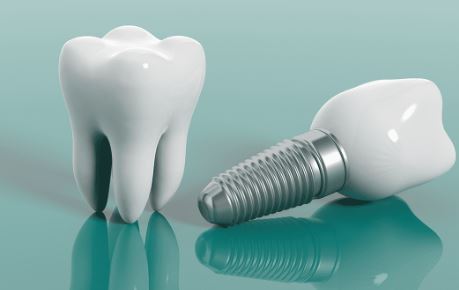Premium Link-Building Services
Explore premium link-building options to boost your online visibility.
Explore premium link-building options to boost your online visibility.
Maintaining good oral health is about more than just having a bright smile. Regular dental visits are an essential part of overall health and well-being. Many people only visit the dentist when they experience discomfort or pain, but waiting for problems to arise can lead to serious consequences for your teeth, gums, and even your general health. Regular check-ups are the key to preventing oral health problems and ensuring that your smile stays strong and healthy for years to come.

Here are the top 10 reasons why visiting a dentist regularly should be part of your health routine.
One of the primary reasons for visiting the dentist is to prevent tooth decay, which can lead to cavities. Even with diligent brushing and flossing, food particles and bacteria can build up in hard-to-reach places, leading to plaque formation.
At a routine dental visit, the dentist or hygienist will:
By catching tooth decay early, you can avoid painful cavities and costly treatments like fillings or crowns.
Gum disease, or periodontal disease, is one of the most common oral health issues. It begins as gingivitis, which causes red, swollen, and bleeding gums. Left untreated, it can progress to periodontitis, a more severe condition that can lead to tooth loss.
Regular dental check-ups include:
Early intervention can save your gums and teeth while preventing complications such as bad breath and bone loss.
Oral cancer is a serious condition that can develop in the mouth, lips, tongue, or throat. While it is a relatively rare condition, it is life-threatening if not detected early.
During a routine dental exam, your dentist will:
Detecting oral cancer early dramatically increases the chances of successful treatment, making regular dental visits a crucial part of early detection.
Whether you're concerned about stains, crooked teeth, or other cosmetic issues, your dentist can help enhance your smile. Professional teeth cleaning removes surface stains caused by coffee, tea, or smoking, leaving your teeth looking brighter.
Additionally, a dentist can offer:
A beautiful smile not only boosts self-confidence but can also improve social and professional interactions.
Persistent bad breath, or halitosis, can be embarrassing and may indicate an underlying dental problem. Common causes include poor oral hygiene, gum disease, or cavities.
Regular dental cleanings and check-ups can:
A fresh and healthy mouth is essential for good self-esteem and overall confidence.
Preventive care is far more affordable than emergency treatments. By addressing minor issues during regular dental visits, you can avoid more extensive and expensive procedures down the line.
For example:
Investing in regular dental visits is a cost-effective way to maintain oral health and avoid unnecessary expenses in the future.
Did you know that your oral health is closely linked to your overall health? Conditions such as heart disease, diabetes, and respiratory infections can be influenced by oral health issues like gum disease.
Regular dental visits can:
Good oral health supports overall well-being, making dental care a vital component of your health routine.
Accidents happen, and sometimes teeth can be chipped, cracked, or broken. If left untreated, damaged teeth can lead to further complications, such as infection or misalignment.
Your dentist can:
Restorative dentistry not only improves functionality but also enhances the appearance of your teeth.
Tooth loss is often the result of untreated cavities, gum disease, or trauma. Losing teeth can affect your ability to eat, speak, and smile confidently. Regular dental care can significantly reduce the risk of tooth loss.
Preventive measures include:
For those who have already experienced tooth loss, your dentist can recommend options like dentures, implants, or bridges to restore your smile.
Even if you brush and floss daily, you may not be doing it correctly or as effectively as possible. Your dentist or dental hygienist can provide valuable tips and advice on improving your oral hygiene routine.
For example:
By maintaining good habits at home, you can maximize the benefits of your regular dental visits.
For many people, dental anxiety or fear of the dentist can prevent them from scheduling regular check-ups. Ironically, avoiding the dentist often leads to bigger problems that require more invasive treatments.
Regular visits can:
If anxiety is a concern, let your dentist know. Many dental offices offer sedation options or calming environments to help patients feel more comfortable.
Visiting the dentist regularly is about more than maintaining a bright smile—it's an investment in your overall health and well-being. From preventing tooth decay and gum disease to detecting serious conditions like oral cancer, the benefits of routine dental care are immense. Additionally, regular visits help you save money in the long run, improve your confidence, and ensure that your teeth and gums stay healthy for years to come.
If it's been a while since your last dental check-up, don't wait any longer. Schedule an appointment today and take the first step toward better oral health! Your smile will thank you.
Explore premium link-building options to boost your online visibility.